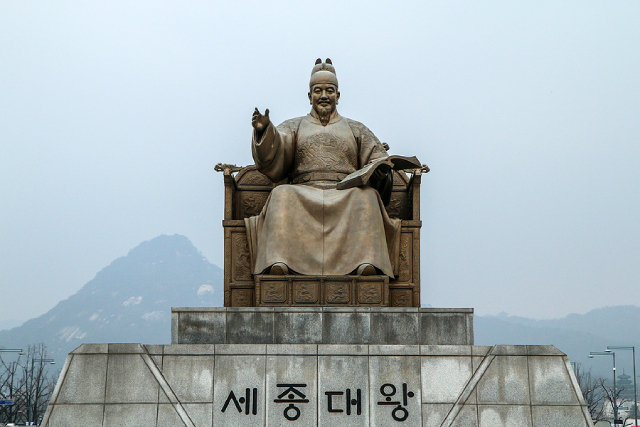King Sejong was born in 1397 and was a monarch during the Joseon (Yi) dynasty. He ruled from 1419 to his death in 1450 – a period widely known as Korea’s Golden Age. Sejong was dubbed King Sejong The Great after his death. He was a scholar who made education and scholarship a high priority. Sejong supported economic, scientific, and cultural research. As such, many long-lasting advantages of his rule are still present in Korea.
Hangeul
Many feats that occurred during this era were attributed to him. Still, perhaps his most notable achievement is the development of Hangeul, the phonetic writing system for the Korean language that is still being used today. The invention of Hangeul, a set of alphabets constructed to be easily learned, is credited with facilitating high literacy rates among Koreans.
Initially, those in Korea had to learn how to use Chinese characters when writing. King Sejong, however, felt that these characters could not capture unique Korean meanings and were inaccessible to the common people. Hence, he created a relatively simple set of letters to improve the quality of their lives via literacy.
However, there was a lot of opposition to the notion among government officials. Many felt that Hangeul would alienate China, a powerful neighbour at the time and also where the Korean state ideology of Confucianism originated. While many stated that this writing system would be an obstacle to higher learning, some speculate that they could have been more hesitant to allow the lower classes to be educated in case they usurped their positions.
In the end, The creation and dissemination of Hangeul allowed literacy levels to skyrocket and for Korea to distinguish itself culturally and politically from China.
Education
King Sejong issued the order for a sizable amount of literary works. He considered literature to be a tool for educating his people. One of the first pieces he commissioned was a history of the Koryo Kingdom. Others included a manual on more productive farming techniques, an updated and expanded collection of sample filial actions, and an illustrated book on the obligations that come with interpersonal relationships.
Civil rights
Sejong was good at taking care of his people, and he did so mainly through law and government. When it came to politics, the well-being of his people was unquestionably one of his top priorities. To accomplish this, he passed new census laws and criminal justice reforms and issued some civil rights for enslaved people and marginalised groups.
Sejong constructed several relief facilities to provide his people with water, food, and shelter whenever Joseon had problems like floods or drought. He also reintroduced the Goryeo loan scheme, which lent out the government’s excess food in exchange for interest-free repayment, specifically for farmers. His government even created the rain gauge to aid Joseon’s powerful agricultural workers.
Conclusion
King Sejong was instrumental to Korea’s long-term success and the cultural impact the country enjoys today. He was also a huge proponent of education and literacy for all his citizens. It’s no surprise that his legacy has stood the test of time and that he is still highly regarded as one of Korea’s greatest leaders.
Sejong Korean language School aims to extend that legacy by providing unparalleled Korean language courses for all interested in learning the language. Passionate native Korean speakers helm the classes for maximised learning opportunities. Contact us today to learn more.


